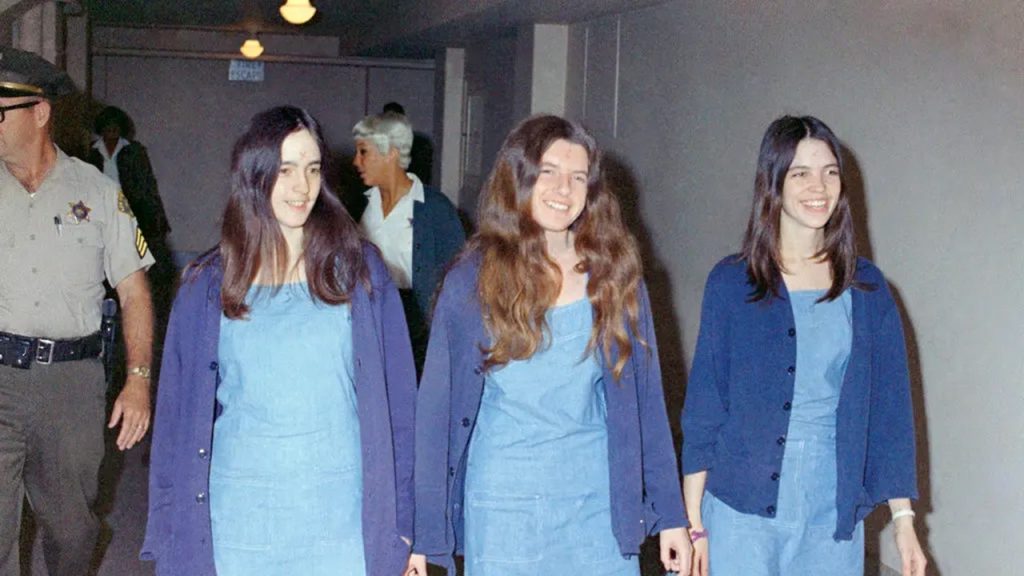California Governor Blocks Parole for Notorious Manson Family Member
In a significant decision affecting one of America’s most infamous prisoners, California Governor Gavin Newsom has once again denied parole to Patricia Krenwinkel, a former Charles Manson follower who participated in the shocking 1969 Tate-LaBianca murders. Krenwinkel, now 77, has been imprisoned for over five decades, making her the longest-incarcerated woman in the United States. Despite the parole board’s recommendation for her release, Newsom determined on October 13 that she still “lacks the requisite insight she needs to be safely released” and “currently poses an unreasonable danger to society.” This rejection marks the second time in recent years that Newsom has overruled the parole board’s decision regarding Krenwinkel, highlighting the continuing struggle between punishment, rehabilitation, and the lasting trauma of some of America’s most notorious crimes.
The horrific events that led to Krenwinkel’s imprisonment remain etched in America’s collective memory. In 1969, at just 21 years old, she joined other members of Manson’s “Family” in a two-night killing spree that claimed seven lives, including actress Sharon Tate, who was eight months pregnant. According to case records, Krenwinkel fatally stabbed Tate’s friend Abigail Folger and assisted in restraining or attacking other victims. The following night, the group murdered Leno and Rosemary LaBianca in their home, leaving disturbing phrases written in blood on the walls, including “Death to Pigs,” “Rise,” and a misspelled “Healter Skelter.” The senseless brutality of these crimes shocked the nation, permanently linking Krenwinkel to one of America’s most notorious murder cases. For many, especially the victims’ families, the passage of time has done little to diminish the horror of these acts or the belief that those responsible should remain incarcerated for life.
Throughout her 53 years in prison, Krenwinkel’s case has illustrated the complexities of rehabilitation and punishment in the American justice system. The parole board has conducted 17 hearings for her since 1977, denying parole 14 times, while she voluntarily declined to pursue it once. In both May 2022 and May 2024, the board found her suitable for release, but Newsom reversed both decisions, pointing to what he considers her inadequate self-awareness and tendency to externalize blame for her actions. While acknowledging her “commendable” progress and extensive rehabilitation efforts—including self-help programs, vocational training, multiple college degrees, and mentoring work—Newsom ultimately concluded that these positive factors are outweighed by continuing “deficits in self-awareness.” The governor’s decision also considered but dismissed factors related to elderly parole, noting that despite Krenwinkel’s chronic medical conditions and advancing age, “her current physical condition is not the most relevant indication of her current risk level.”
Krenwinkel’s attorney, Keith Wattley, strongly disputes the governor’s assessment and continues to advocate for her release. “For more than five decades, she has committed to deep healing and rehabilitation, earning degrees, counseling others and becoming a mentor to younger women inside,” Wattley stated. He argues that under California law, parole must be granted when a person no longer poses “an unreasonable risk to public safety,” and that “Patricia’s record meets that standard.” Supporters emphasize her transformation from “the lost 19-year-old who sought guidance from Charles Manson” to “a compassionate mentor,” and point out that she qualifies under multiple special parole provisions—youth offender parole, elderly parole, and domestic violence survivor parole—all designed to recognize offenders who were young, vulnerable, or under coercive control when they committed their crimes. These advocates believe that Krenwinkel’s case exemplifies the very purpose of the rehabilitation-focused parole system.
The Krenwinkel case raises profound questions about justice, redemption, and the purpose of incarceration in American society. On one hand, the enormity of the Manson Family crimes continues to resonate decades later, with many feeling that the shocking nature of these murders warrants lifetime imprisonment. On the other hand, supporters point to evidence of genuine transformation and rehabilitation, questioning whether continued incarceration serves any purpose beyond retribution for a person who committed these acts as a young adult under the influence of a manipulative cult leader. The governor’s decision highlighted psychological evaluations describing the young Krenwinkel as displaying “transient immaturity, impulsiveness and recklessness” and “a lessened capacity to extricate herself from disadvantageous environments”—factors that might be viewed differently under contemporary understanding of culpability, especially for young adults under coercive control.
With this latest parole denial, Krenwinkel remains incarcerated at the California Institution for Women, her future uncertain as she approaches her eighth decade of life. The parole board had finalized its most recent recommendation for release on September 27, giving Newsom until October 27 to affirm the release, block it, or refer the case for further review. His decision to reverse the board’s recommendation ensures that one of the last imprisoned members of the Manson Family will remain behind bars for at least several more years before another parole hearing. For victims’ families, this may provide continued assurance that justice is being served; for Krenwinkel’s advocates, it represents another disappointing setback in their belief that she has earned a chance at freedom in her final years. The case continues to exemplify the tension between California’s increasingly rehabilitation-focused correctional system and the enduring public memory of crimes so shocking that, for many, no amount of rehabilitation seems sufficient to warrant release.


